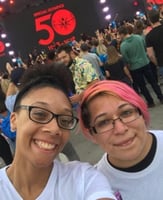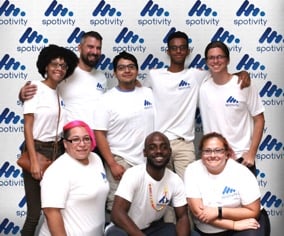If you are building a youth-centric company, engaging the youth into the work process is an all-around solid move. Montana Butsch, Founder and CEO of Spotivity has put together a guest post on how companies can build a better product by strategically engaging the very audience they look to serve.

Guest Author: Montana Butsch, Founder and CEO, Spotivity
The Startup world is frantic, uncertain, and exciting all at the same time – especially in the teen space. With that in mind, though there are certain truisms to building any business, it is extremely wise to gain on-going insight and work product from, the very individuals you are looking to serve.
With that in mind, though there are certain truisms to building any business, it is extremely wise to gain on-going insight and work product from, the very individuals you are looking to serve.
In the space of a youth centric eco-system, Spotivity looks to solve the afterschool activity conundrum by the introduction of a ‘Street Team’ - a key age appropriate product development work group.
Getting started: Engagement and Involvement are Two Separate Things – Know How to Use Both
When working with a group of individuals that are not financially incentivized the distinction between Engagement and Involvement needs to be clear, understood, and thoughtfully addressed. In our experience, this means:
- Engagement- the willingness of individuals to be assertive in their involvement and show, through their own agency and decisions, a ‘thoughtfulness of being’ that shows they are more than just work product producers.
- Involvement – the clear result of ‘showing up’ and producing declarative work that moves the agency forward on any front.
These two focuses can exist in a mutually exclusive manner – but the agency and the individual suffer if  this is the case. Agencies work best when a virtual circle of positive feedback loops exist.
this is the case. Agencies work best when a virtual circle of positive feedback loops exist.
In our case, the Street Team involvement helps Spotivity learn more about the target demographic while providing on the ground research while the Steen Team individuals build transferable job skills, improve their resumes, and practice real life skill sets. This quid-pro-quo is the backbone to our respective system.
How to Identify the Right People and Create That Positive Virtuous Cycle
In short – you can never be certain of the correlation between interest and competency, engagement and solid work product, or good intentions and success. The truth in building a good team is that it involves a lot of trial and error. The best way we have addressed this concern is to cast a wide net and work with each member closely until competency, interest, and work product become apparent. Your team can never be too large with good people but propping up too many mediocre contributors can hold your agency back while negatively affecting the moral of those that are giving good effort. Good leaders are successful at navigating this very tricky landscape.
General convention on team building can easily lead towards a no man’s land especially when uncertainty is involved. Though each situation is unique – the way to approach uncertainly is not.
As Startup entrepreneurs, we know uncertainty is the norm and assuming anything else easily leads to the path of ruin. There are two trains of thought when launching a venture – you could A) double down and focus with maniacal effort the things you do well or you could B) assume your strengths will hold tight and focus with the same maniacal effort a shoring up of all knowledge gaps. It is like the old sports adage – the best defense is a better offence and visa-versa. In truth, each start-up situation is unique and each business solution bespoke to that agency. Doing your homework matters. Having a good idea at the right time matters. Knowing when to double down on a hunch is just as important as knowing when to fold. But a start-up equation (outside of accepted generalities) does not really exist. In Spotivity it was clear that gaps existed that the youth market could help identify, explore, and solve.
 In short – we have found a positive quid-pro-quo relationship, one that is declarative in nature and provides the currency needed for a mutually beneficial relationship. I would highly suggest that every start up agency identify, and appropriately involve, your own respective ‘Street Team’.
In short – we have found a positive quid-pro-quo relationship, one that is declarative in nature and provides the currency needed for a mutually beneficial relationship. I would highly suggest that every start up agency identify, and appropriately involve, your own respective ‘Street Team’.
There is value to be gained on both sides and little downside to a well-run relationship. Every start up deals with scarce resources, why would you not take advantage of resources hiding in plain sight?
The opinions expressed here by 1871 guest writers are their own, not those of 1871. To learn more about Spotivity follow this link. To get in touch with Montana Butsch, drop him a line at montana@thinedgeconsulting.com.


